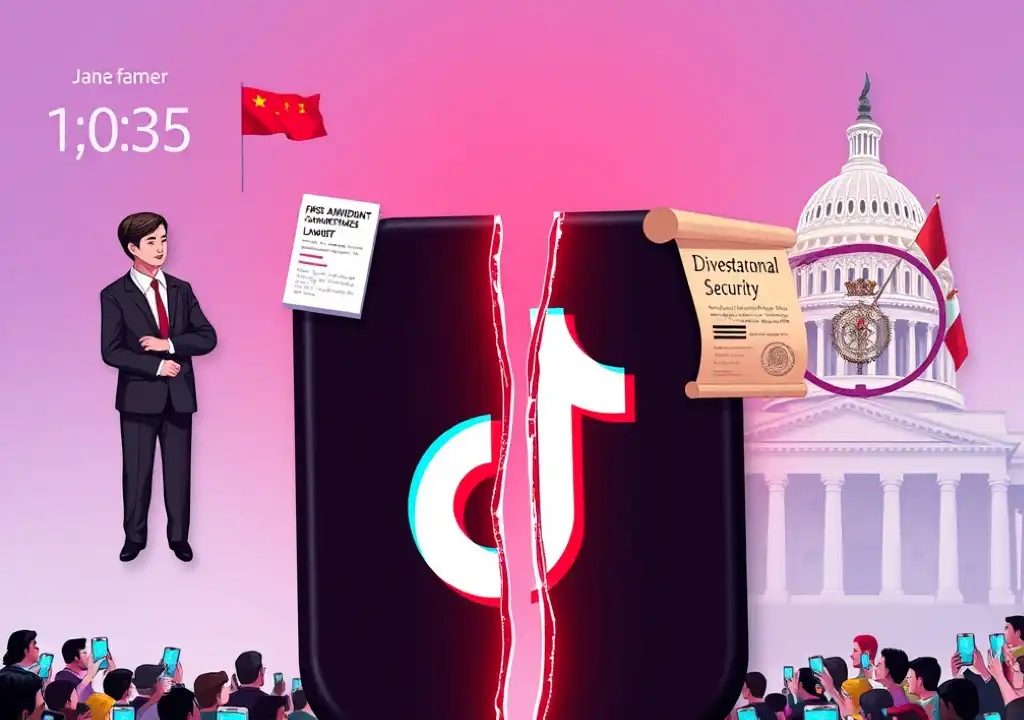Lawsuit Challenges New US Law Mandating TikTok Sale
ByteDance, the Chinese tech giant that owns TikTok, has filed a legal challenge against a newly signed US law requiring it to sell off TikTok’s US operations. The lawsuit, filed in the US Court of Appeals in Washington, DC, claims the law violates the Constitution, specifically the First Amendment. President Joe Biden signed the law on April 24 as part of a broader legislative package that also included aid to Ukraine and Israel and humanitarian support for Gaza.
ByteDance Calls Law ‘Unconstitutional’ and Unfeasible
The law gives ByteDance until January 19, 2025, to divest from TikTok in the United States, with a possible three-month extension. However, ByteDance’s lawsuit argues that such a divestment is practically impossible within the time frame — “not commercially, not technologically, not legally.” The company insists the law is discriminatory, targeting a single platform in a way that amounts to a nationwide ban. The lawsuit warns that the law could silence 170 million US users who depend on TikTok to engage and share ideas.
Divestment Technically and Legally Complex, Company Says
ByteDance has stated that selling TikTok would involve transferring millions of lines of code and complex algorithms, which are central to the app’s functionality. However, such data transfers would likely be prohibited under the new legislation. ByteDance argues that complying with the law would effectively mean shutting down TikTok in the US, which would suppress unique forms of communication and digital expression.
US Lawmakers Defend the Move as a National Security Measure
Supporters of the legislation, including Representative Raja Krishnamoorthi, argue that the law is necessary to safeguard national security. Critics fear the Chinese government could potentially access sensitive user data collected by TikTok. Lawmakers maintain that ByteDance’s Chinese origins pose a risk to American privacy and national interests. ByteDance has repeatedly denied sharing data with Chinese authorities and asserts that such concerns are speculative.
TikTok’s Data Protection Efforts Noted in Lawsuit
In its defense, ByteDance highlights its $2 billion investment into securing US user data and references a 90-page draft “National Security Agreement” it developed with the US government. Despite these efforts, Washington has continued to treat TikTok as a national security concern, with bipartisan calls to restrict or remove the platform from US markets intensifying over the past four years.
Legal Battles Echo Previous Attempts to Ban TikTok
This legal showdown mirrors past efforts to limit TikTok in the US. In 2020, former President Donald Trump attempted to ban the app through an executive order, but courts blocked it due to lack of evidence supporting the ban. In 2023, Montana passed a law banning TikTok, which was also halted by a federal judge due to enforcement issues and legal challenges.
Free Speech Advocates Predict TikTok May Win Again
Experts in constitutional law believe ByteDance has a strong case. Jameel Jaffer, head of the Knight First Amendment Institute at Columbia University, stated that the government lacks sufficient justification to ban Americans from accessing foreign media like TikTok. He believes ByteDance is likely to succeed in blocking the law, just as it did in prior cases.
China Responds With Its Own Restrictions on US Apps
In a tit-for-tat response, China has implemented similar national security measures against American tech companies. Recently, it ordered the removal of WhatsApp and Threads, both owned by Meta, from Chinese app stores. These developments highlight the growing digital divide and rising tensions between the US and China over technology and data sovereignty.

